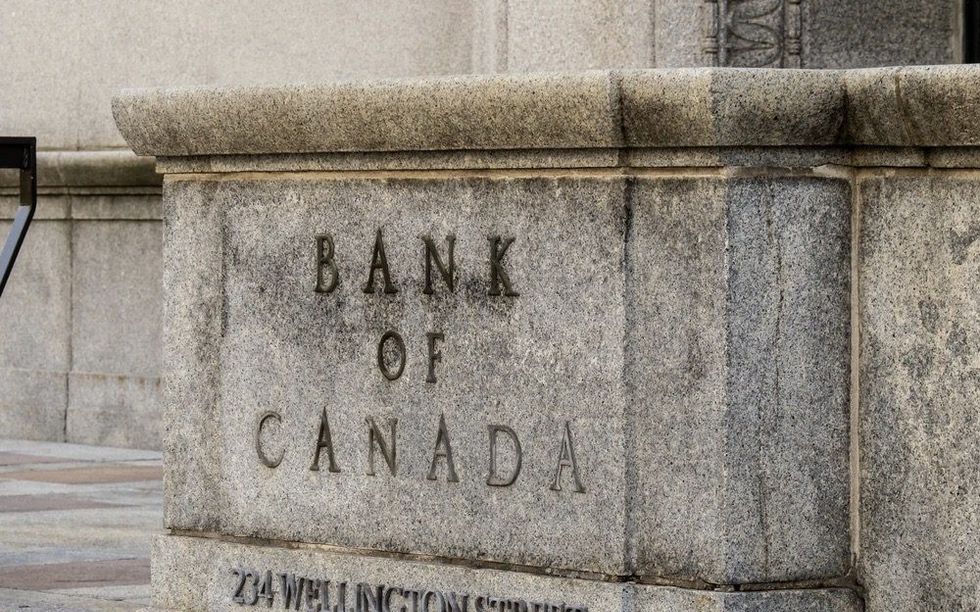In today's World Economic Outlook, the International Monetary Fund (IMF) cut its growth forecast for the world economy, due to Russia’s invasion of Ukraine.
While the global outlook isn’t exactly uplifting news, things aren’t that dim for Canada. According to the IMF, Canada will see just a modest revision to its current GDP outlook.
Changing its tune from its January predictions, the IMF now predicts the global economy will grow 3.6% in 2022 and 2023, marking 0.8% and 0.2% decreases from the start of the year. In January, the IMF said the global economy was in recovery mode from the pandemic and predicted 4.4% growth. This marked a notable drop from 6.1% last year. The IMF also said it expects the world economy to grow 3.6% again in 2023, slightly slower than the 3.8% forecast at the start of the year.
In addition to the ongoing war in Ukraine, the IMF cited COVID-inspired lockdowns in China and a recent tightening of monetary by central banks around the world as reasons behind the revisions.
There is some uplifting news (well, depending on how you look at it): Canada saw the smallest downward revision in its growth forecast of all advanced economies, with just -0.2% decrease to 3.9% from the projected 4.1% in January and 4.6% in 2021.
This compares to -0.3% for the United States, -1.0 for the United Kingdom, and -1.1% for the Euro area. The IMF maintained its projection for 2.8% growth in Canada for 2023. The organization highlighted how Canada’s economic links with Russia are limited; it stated that the revised outlook reflects recent interest rate hikes and an anticipated weaker demand from the United States that outweigh improved trade terms.

However, while the direct impact of the Ukraine-Russia conflict appears limited for Canada, there are growing concerns that recessionary pressures are afoot here. According to Finder’s Band of Canada Overnight Rate Survey, 59% of economists forecast a recession will happen in Canada sometime in 2023 or first half of 2024. The prediction comes at a time when the country's grocery and gas prices have Canadians reconsidering their purchasing habits following steep inflation, which the central bank is attempting to address with last week's 0.5% interest rate hike. According to Finder's survey, most experts predict four more interest rate increases this year.
“Given recent hawkish remarks by Bank of Canada officials, we now expect a 50bpt hike in April followed by two 25bp-hikes in June and July, [lifting] the policy rate to 1.50% by July,” said Tony Stillo, director of Canada economics for Oxford Economics. “We continue to expect the Bank will take a pause after its July rate increase to reassess the Canadian economy, particularly with elevated household debt burdens and overvalued housing prices, before it resumes increasing rates in 2023.”
James Knightley, chief international economist for ING, agrees the BoC has become more aggressive in its policy to increase rates but also explains Canada’s unique position.
“The Canadian economy has recovered all output lost during the pandemic while employment is at all-time highs and inflation is running at the fastest rate since 1991,” says Knightley. “Central banks around the world are acknowledging the threat of more prolonged inflation pressures with rate hike expectations moving sharply higher. Canada's economy, given its relatively heavy commodity weighting, looks to be one of the growth outperformers with a rising likelihood of a more aggressive policy response from the BoC.”
The IMF warned that supply shortages could persist and acknowledged how runaway inflation could result in more aggressive tightening from central banks around the world. It forecasts a 5.7% jump in consumer prices in the world’s advanced economies this year -- the most since 1984.
While there may be a silver lining for Canada with respect to today’s outlook, the reality remains that things are far from perfect on the economic front.





















